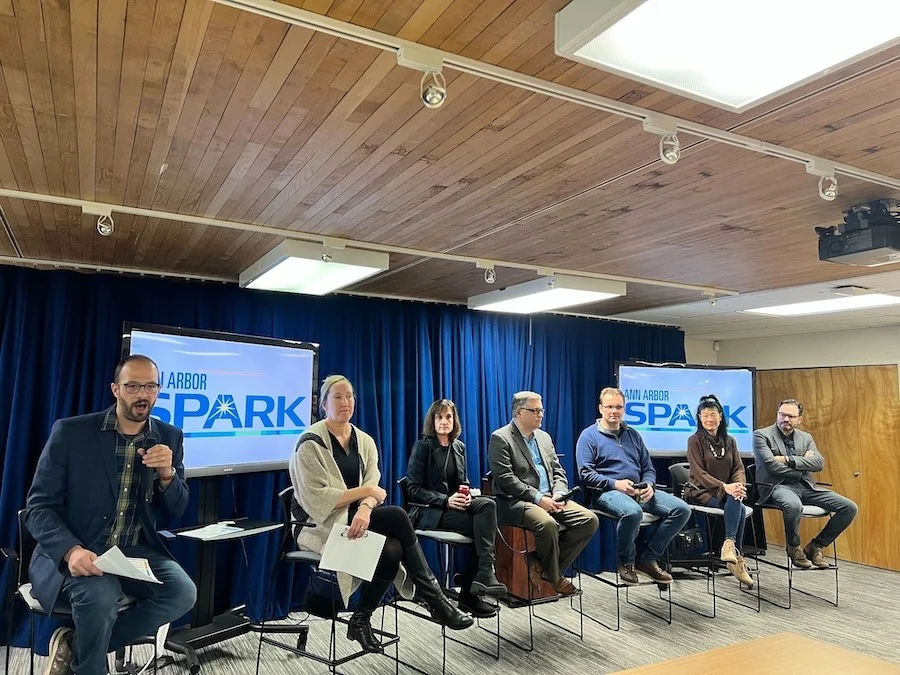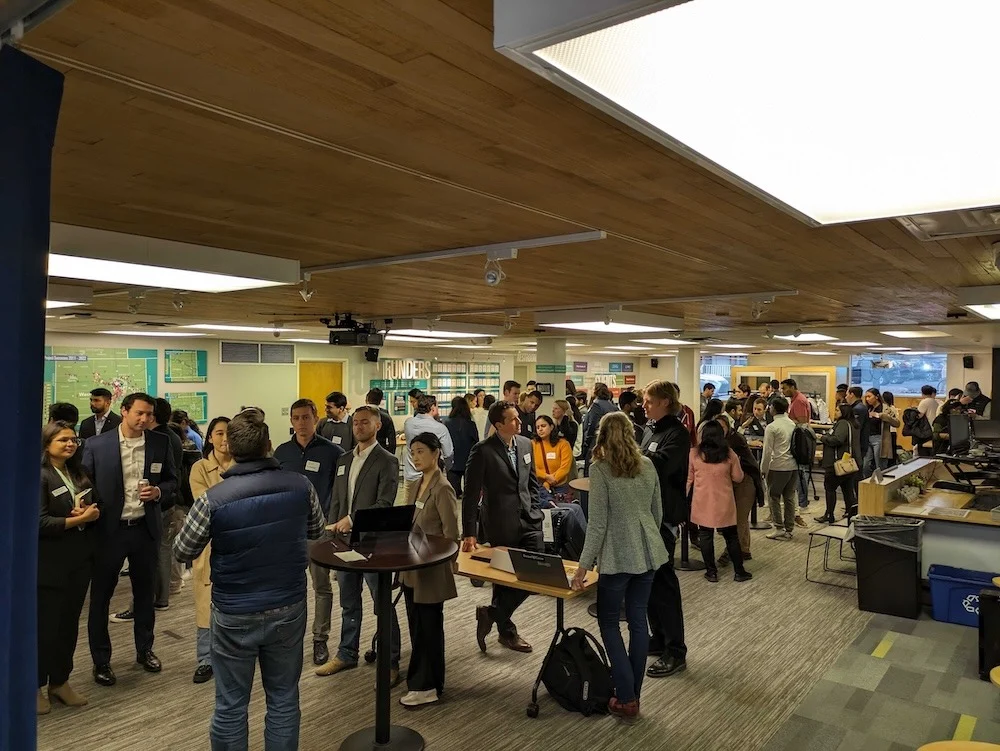
By Lauren Zyber, Purpose Jobs
Starting a business can be lonely work — 70% of executives consider quitting their jobs because of feelings of loneliness, according to a Deloitte survey. When you’re building something that’s never been done before, often by yourself, that sense of loneliness only gets worse.
Every successful founder knows the importance of mentorship and collaboration. No one can—or should—do it alone. In Southeast Michigan, as the startup and tech community continues to grow, the availability of mentors (and the need for them) is only increasing.
Ann Arbor SPARK’s Entrepreneur-in-Residence (EIR) program is built to help early-stage founders get access to mentorship and support.
In order to help provide essential mentorship and advice to startups, EIR connects founders with C-level executives with a proven track record of success. Operating like matchmakers, SPARK helps early-stage companies get the resources they need all while helping retain experienced entrepreneurial leaders in the region. Three such leaders shared their experience in the program and the massive growth it has fostered.
Shoring up
One of the biggest benefits of having an Entrepreneur-in-Residence assist an early-stage startup is the expertise they bring. No one is an expert in all areas of business.
Jack Prince, a seasoned professional in Ann Arbor, has built much of his career in tier-one business development within the automotive industry. Drawn to the local startup and tech community, he now focuses on supporting early-stage startups, sharing his knowledge and experience to help turn ideas into successful products.
“The EIR program plays a crucial role in supporting founders and helping them bring their technology to market,” Jack said. “Founders have varying levels of experience, and this program is all about shoring up business acumen.”
Jack applies his business development skills to the company’s field of work, helping build a foundation and supporting things like building digital assets and garnering customer engagement. Specifically, Jack has worked with founders on creating pitch decks, raising funding, customer discovery, and more.
Spencer Chamberlain worked at Ford and General Motors for a number of years in the business development space and wanted to share his experience in the mobility sector. One founder he’s working with now is leveraging Spencer’s insights to help the company grow. Spencer’s experience allows him to help founders consider whether a product addresses a real customer need, create prototypes, and tell the company story to expedite funding.
“We’re there to complement them in thinking about certain details they might not think of or ever be aware of,” Spencer said. “I’m doing a lot of program management, product management, and communications.”
“Starting a company is really hard, and it takes a lot of courage and patience. I’m really blown away by the persistence of these founders,” he said.
Matchmaking
Brenda Jones has experienced the EIR program on both ends of the spectrum. She now serves as CEO of Ulendo, a company that makes 3D printing software. After working as a consultant in the EIR program for numerous companies, she eventually connected with the Ulendo team. Because of her work with them in the EIR program, they offered her the position of CEO.
“The EIR program can help people discover if they’re going to gel with the founder and the team, which is huge,” Brenda said. “It’s like a matchmaking program.”
Now, as she continues to help Ulendo grow as its CEO, Brenda has gotten support from SPARK’s mobility-specific EIR program, which is funded through a partnership with the Global Epicenter for Mobility (GEM).
As the only nontechnical member of the Ulendo team, Brenda needed help with other business matters.
“It’s very lonely being a CEO, especially when everyone else is technical,” she said.
Through the GEM EIR program, Brenda was able to bring on a consultant to help with growing the company’s sales pipeline. This mentor has helped with website redesign, networking at conferences, providing feedback on messaging and product descriptions, and more.
“I now have someone with my [business] DNA that I can bounce ideas off of. We’ve made better decisions with him, and he’s helped improve our value proposition,” Brenda said.
Through his work, Ulendo’s sales pipeline has exponentially increased, helping attract new interest and investments.
“It’s all part of the goodness chain,” she said.
The ripple effect
It can be easy to track the success of the EIR program through stories such as Brenda’s with an increased pipeline, but the real impact is much greater than the success of one company alone.

Jack explained it as a ripple effect: “You plant seeds in the tech community, and they require direct support, like legal, business development, sales, branding, etc. When you invest in the tech community, you invest in people, and the EIR program gets these companies across the finish line. They get bigger, the infrastructure grows, they hire people who live here or move here, and it’s a real ripple effect for the whole community.”
As Brenda pointed out, there can also be a direct correlation between the support EIRs give and new investments companies bring in, funneling more and more early-stage startup capital into the ecosystem. All of this work helps compound the momentum that the Southeast Michigan tech hub is already experiencing.
“Detroit is one of the fastest-growing tech hubs, and Ann Arbor SPARK is a part of that,” said Spencer. “Having a group focused on early-stage companies in such a systemic way has been integral to the growth of companies and of the greater tech ecosystem.”
Interested in getting help from an Entrepreneur-in-Residence for your company, or in becoming an EIR? Learn more about the program here.